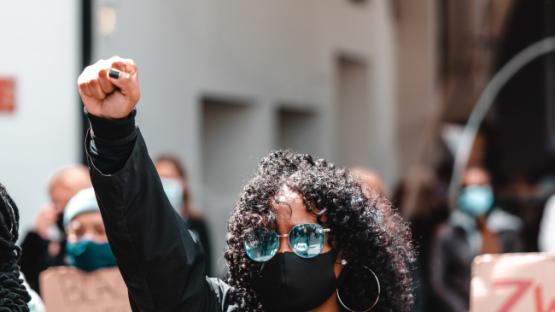
Photo by Joan Villalon on Unsplash
On June 9th, in light of the global debate against racial injustices, the company IBM announced they would stop selling facial recognition. Here are 4 quick-fire thoughts we have on this.

Photo by Joan Villalon on Unsplash
On June 9th, in light of the global debate against racial injustices, the company IBM announced they would stop selling facial recognition. In a letter to the US congress, they demanded a “national dialogue on whether and how facial recognition technology should be employed by domestic law enforcement agencies.”
It is worth noting first of all that it is not entirely clear that IBM is actually stopping facial recognition. The letter states that "IBM no longer offers general purpose IBM facial recognition or analysis software." The key here might be the words "general purpose." Is IBM suggesting that when it comes to customised products, they will still consider selling facial recognition?
While IBM is certainly expecting to be applauded for their latest move, we see a PR stunt and an opportunity to bring a little more scrutiny to the role IBM has been playing in empowering the police. Here are 4 quick-fire thoughts we have on this.
IBM have been instrumental in developing the technical capabilities of the police through the development of so-called smart policing techniques. A quick look at their website is enough to see the myriads of programmes they offer to police forces all over the world, including predictive policing programmes. In 2012 for instance, they sold the police in Atlanta a system aimed at classifying high-risk offenders. Where was the national dialogue then?
We hope that the national dialogue, that IBM is now calling for, will include an investigation into whether any police discrimination against ethnic minorities occured as a result of potential inherent bias in their policing tools.
IBM were the ones who coined the term “smart city.” The concept has since been dominating the discourse around urban planning in recent years. But, as we documented in a report on the role of IBM in shaping smart cities back in 2017, at the essence of it was their vision of what cities should be and that vision was one where surveillance and security was at the heart of every city. All around the world, they pushed a model of urbanisation which relied on CCTV cameras and sensors processed by police forces, thanks to the smart policing platforms IBM was selling them.
Again, a look at their website will give you a sense of how much effort IBM is spending on trying to offer governments solution to detect suspected cases of welfare fraud. In 2018, In North Carolina, for instance, they created an analytics system to attempt to detect Medicaid fraud. Interviewed in IBM’s promotional video, Al Delia, the Acting Secretary for North Carolina Health and Human Resources, says of people who are flagged by the system: “We can stop paying them [benefits] the minute we identify them as potential rip-off artists.”
People who are relying on welfare to survive are people in vulnerable situations and that often include people from ethnic minorities backgrounds. So the very people IBM is now concerned about are also the same people who are most impacted by IBM's work on welfare.
IBM's move should not make us forget about the number of companies - from Amazon to Huawey and Facewatch - thriving on collaboration opportunities with the police. Those secret deals between law enforcement and private companies lack the necessary public debate and impose an unprecedented level of intrusion upon our everyday lives.
We cannot wait for companies to give up on developing, selling - or even selflessly donating - surveillance technology, we need much more transparency about the existing partnerships with police forces. But we also need to follow the lead of countries like France and Belgium that are imposing stronger restrictions on facial recognition or cities like San Francisco that has banned facial recognition altogether.
It is easy to see through the game of IBM: the company that became infamous for selling tabulating devices (the ancestors of computers) to the Nazis during World War 2 is trying to avoid another PR scandal. Yet, they are just another company that has been profiting from the police’s appetite for technology and from the state’s cut to welfare benefits.